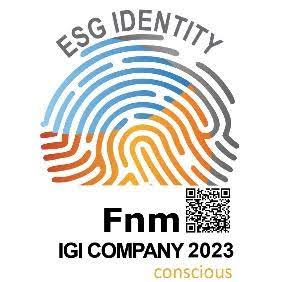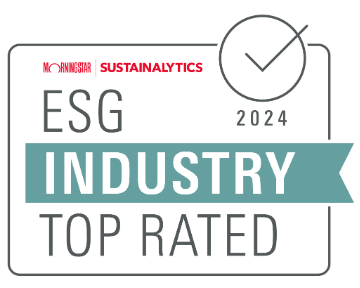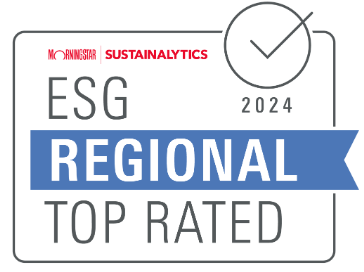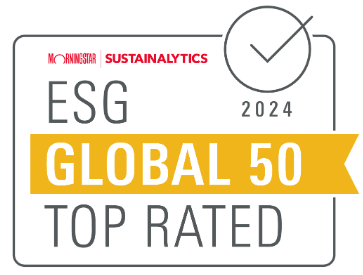Sustainability initiatives and projects
Moving from the awareness hat long-term economic growth is not sustainable if it is not accompanied by the protection and enhancement of the environment, natural resources, people and local communities, the FNM Group has long been committed to a path of sustainable development aimed at increasingly improving its impact on the environment and society.
The sustainability initiatives and projects implemented by the FNM Group cover the following areas:
1) Energy saving and energy efficiency projects
2) Fleet and infrastructure modernisation
3) External and internal development and promotion of sustainability principles by FNM
4) Promotion of the local area and tourism
5) Offers of integrated, intermodal and sustainable mobility services
6) Landscape and environmental context and biodiversity
1 – ENERGY SAVING AND ENERGY EFFICIENCY PROJECTS
The expansion of the rail network operated by FERROVIENORD, the increase in rail services and the increase in the specific power of the new fleet entail a significant increase in energy consumption. However, the company is committed to improving its energy efficiency through:
environmentally friendly development of rail traffic;
competitive traction energy cost for Railway Companies accessing the network;
reduction in the energy consumption of plants and their maintenance costs;
use of the energy market through tenders that enhance the railways’ daily absorption profile and streamline supply points;
use of renewable sources;
To achieve the set energy efficiency targets, the Group has already implemented several initiatives, including:
ENERGY EFFICIENCY IN STATIONS AND OFFICES
LED lighting in FERROVIENORD stations In line with the target of equipping all FERROVIENORD stations with LED technology, the lighting systems at stations are being renewed with the gradual replacement of less efficient bulbs. These measures will bring numerous benefits, including improved energy efficiency in the lighting of buildings and station areas, and reduced consumption and CO2 emissions.
QUALITY OF SERVICE AND CUSTOMER SAFETY AT THE STATION AND IN TRANSIT
The issue of service quality and customer safety in stations and in transit (Security and Safety), together with health and safety in the workplace, is now more important than ever. These issues represent a cornerstone: on one hand, being able to guarantee customers a high-quality service at stations, parking areas and bus stops and, on the other hand, encouraging and promoting an internal safety culture.
It is crucial to ensure that services and infrastructure are accessible. The ability to offer all customers, without any discrimination, access to its vehicles and to guarantee the safety of passengers and employees against any possible threat, whether on the train, bus, station, street or at the bicycle and car parking areas, is an essential prerequisite for FNM.To this end, all stations are constantly monitored by a fixed and itinerant surveillance system (security), coordinated by a central hub which is manned 24 hours a day. To support these activities, on the Milan branch there are 19 guards in the stations and anti-graffiti initiatives have been launched in 9 stations.
SUPPLY CHAIN
Procurement activity is considered to be of strategic importance as it ensures high service quality and mitigates the impacts on the environment and the community in which it operates.
Upstream of its own activities, the FNM Group carefully selects its suppliers based on general requirements, possession of quality certifications and compliance with labour costs. In this regard, the Guidelines for Sustainable Purchasing offer recommendations for promoting the adoption of environmental and social sustainability criteria within the purchase process (Green Procurement) of companies belonging to the FNM Group.
Sustainable Procurement Working Group of the Global Network Italy site
2 – FLEET AND INFRASTRUCTURE MODERNISATION
The purchase of rolling stock is carried out both by FNM, as Ro.S.Co., with its own funds, and by FERROVIENORD, designated by the Lombardy Region as the entity in charge of the purchase of rolling stock with the latter’s funds. Thanks to funding of EUR 1.6 billion guaranteed by Lombardy Region, in 2017 the FNM Group was able to organise three different tenders to initiate the process of overhauling its fleet of trains for the regional rail service. The initial plan provided for the purchase of 161 new trains (100 high-capacity, 31 medium-capacity and 30 diesel/electric) by 2025. Thanks to the savings involved in the first two tenders awarded by FNM, additional resources were made available which meant it was possible to fund the purchases of a further 15 trains (five high-capacity Hitachi Rail trains and 10 medium-capacity Alstom trains). These gradually entered into service starting in 2020. As a result, the fleet set forth in the upgrade programme increased from 161 to 176 trains. In addition, the Lombardy Region has allocated EUR 351 million for the purchase of 46 more trains (26 high-capacity Caravaggio trains for the airport service – of which 16 with 4 bodies and 10 with 5 bodies – and 20 medium-capacity Donizetti trains) by 2025.
This investment is in addition to the fleet renewal programme already under way for a total of 222 new trains. The funding operation is one of the biggest investments ever made by the Lombardy Region in the transport sector and will ensure the complete renewal of the rolling stock currently in circulation.
The new rolling stock has a number of environmental benefits: LED lighting, Wi-Fi, bike stations and electric e-bike sockets, mobile platforms to ensure accessibility for people with reduced mobility (PRM), a traffic safety system (ERTMS/ETCS), a 30% reduction in electricity consumption, noise reduction, recovery of electrical energy in braking, and highly reusable and biodegradable materials.
THE FNM GROUP TOGETHER WITH TRENORD IN THE H2ISEO PROJECT

The new rolling stock has a number of environmental benefits: LED lighting, Wi-Fi, bike stations and electric e-bike sockets, mobile platforms to ensure accessibility for people with reduced mobility (PRM), a traffic safety system (ERTMS/ETCS), a 30% reduction in electricity consumption, noise reduction, recovery of electrical energy in braking, and highly reusable and biodegradable materials.
For more information:
With regard to infrastructure, the main measures concern:
- the gradual reduction of architectural barriers in FERROVIENORD stations;
- the upgrading of the railway network to the highest safety and energy efficiency standards;
- installation of systems for surveillance and ensuring passengers’ personal safety;
- gradual reduction in the number of level crossings on the railway network operated by FERROVIENORD.
3 – EXTERNAL AND INTERNAL DEVELOPMENT AND PROMOTION OF SUSTAINABILITY PRINCIPLES BY FNM (STAFF TRAINING ON CSR-SUSTAINABILITY)
The FNM Group has a nearly 150-year history linked to the local area and the Lombardy community. An exemplary story that has evolved over the years and aims to develop a smart region and sustainable development model that guarantees public accessibility to the transportation of people and goods by various means in the cities and territory of Lombardy and Northern Italy.
With a view to developing and promoting the principles of sustainability, including externally, the FNM Group participates in local and international networks and associations.
AT NATIONAL LEVEL:
PARTICIPATION IN ASSTRA’S SUSTAINABILITY WORKING GROUP
The FNM Group is part of the ASSTRA Transport Association, which brings together 142 Local Public Transport companies in Italy and works to promote environmental, social and economic values as a core part of the country’s development. FNM coordinates the national sustainability work group, whose aim is to develop guidelines and provide training courses designed to engage LPT companies in CSR and sustainability issues. In collaboration with FNM, ASSTRA developed the document “Social and environmental responsibility for public transport companies – guidelines and instructions for writing a Sustainability Report”. Specific indicators for the transport sector were identified for the first time. . . . LINK: Guidelines
PARTNERSHIP WITH THE FONDAZIONE PER LO SVILUPPO SOSTENIBILE
FNM has supported the Fondazione per lo Sviluppo Sostenibile (Foundation for Sustainable Development) since 2017 and is a member of the foundation’s scientific committee. FNM is also a signatory of the “Exiting the pandemic with a new Green Deal for Italy” manifesto, and with its subsidiary E-Vai is a member of the Sharing Mobility Observatory.
JOINING THE LOMBARDY PROTOCOL FOR SUSTAINABLE DEVELOPMENT OF THE LOMBARDY REGION
In 2020 FNM signed the Lombardy Protocol for Sustainable Development, making specific commitments in the CSR-Sustainability sphere, including participation in the MiTE Prosperity working group within the Forum for Sustainable Development, the provision of training courses at Foundations and Universities concerning CSR and the development of initiatives revolving around education on sustainable mobility and intermodal transport, responsible consumption and environmental protection, and the development of reporting policies aimed at ensuring transparent communication.
MINISTRY FOR ECOLOGICAL TRANSITION AND FORUM FOR SUSTAINABLE DEVELOPMENT
As part of the implementation and review of the National Strategy for Sustainable Development (SNSvS), FNM participates in the Sustainable Development Forum and activities of MiTE’s Prosperità (Prosperity) work group. The group focuses on the promotion of research and innovation in the field of sustainability, as well as striving for full employment, quality training and sustainable production and consumption models as part of a push to decarbonise the economy. . Its aim is to provide operational guidelines and proposals designed to support international negotiations with specific reference to measures relating to ‘New times in the city and sustainable urban mobility’ and to plan the annual National Sustainable Development Conference.
FRAMEWORK AGREEMENT FOR COLLABORATION BETWEEN FNM AND THE UNIVERSITY OF MILAN BICOCCA
The Framework Agreement for collaboration between FNM and the University of Milan Bicocca promotes activities aimed at supporting research, carrying out informative educational activities, increasing scientific knowledge, creating new professional skills and expertise, developing partnerships with companies in the areas of Corporate Social Responsibility, reporting, social innovation and sustainable development. The Parties, each making their expertise and relationships available, collaborate on projects, research, measurement activities, training, publications, conferences, conventions, study days and in-depth studies, aimed at raising awareness and disseminating best practices.
AT INTERNATIONAL LEVEL:
UITP SUSTAINABLE DEVELOPMENT COMMITTEE
To reinforce the Group’s commitment to achieving the SDGs, since 2017 FNM has been supporting UITP (International Association for Public Transport) and its activities. In 2019 FNM organised the 27th Sustainable Development Committee at its headquarters in Piazza Cadorna, Milan. This was officially recognised by the United Nations Framework Convention on Climate Change (UNFCCC). It participated in the subsequent editions in Rotterdam and Cape Town (2019) and the 2020 edition in Paris, which was held online due to the pandemic, and since 2021 he has chaired the Committee by promoting actions and projects on renewable energy, climate change and the contribution of the public transport sector to the goals of the UN 2030 Agenda.
MEMBERSHIP OF THE UNITED NATIONS GLOBAL COMPACT
Since July 2021, FNM has been a member of the United Nations Global Compact and has adhered to the 10 founding principles relating to human rights, working conditions, the environment and the fight against corruption. Within the network, every year it is necessary to publish a Communication on Progress (COP) and participate in working groups launched by the Italian network.
ESG RATING
Investors are increasingly active on the issue of responsible investment, and ESG ratings are a key element used by the financial community to steer their investment decisions towards companies with lower risks and greater opportunities in the Environmental, Social and Governance (ESG) sphere.
In order to obtain an independent external assessment of sustainability performance based on a structured and validated assessment procedure, in 2023 FNM obtained two solicited ratings with the selected rating agencies Sustainalytics and CDP (Climate survey area).
In 2023, FNM was recognised as one of the best-performing companies assessed by Morningstar Sustainalytics, based on the ESG Risk Rating obtained (6.6), confirming its position among the top 40 top-rated companies of the approximately 15,600 entities assessed worldwide and in 5th place among the 183 companies active in the transport infrastructure sector.

FNM was ranked fifth among the “extra top 100” companies in the Integrated Governance Index 2023, an analysis model that measures the degree to which ESG factors are integrated into corporate strategies. For several years now, FNM has occupied the top positions in this special ranking, testifying to the centrality of environmental, social and governance sustainability issues for the Group.



CSR-SUSTAINABILITY TRAINING FOR STAFF
The FNM Group believes that its commitment to sustainability must start from within, through activities to raise awareness and training, to the culture of sustainability. In this context, internal training courses are organised on the topics of CSR-Sustainability, sustainable mobility and the environment, and a manual of best practices in the company was created.
During 2023 the FNM CSR-Sustainability Department designed and created an online e-learning course entitled “Sustainable development: the evolution of sustainability and the tools to be adopted in the company”, dedicated to the staff of FNM S.p.A. and all of the Group Companies falling within the scope of the NFS. The course is aimed at developing expertise concerning sustainable knowledge, practices and behaviour to reconcile the Group’s economic objectives with its environmental and social objectives and to steer sustainability strategies. The course was successfully completed by more than 80% of employees.
4 – PROMOTION OF THE LOCAL AREA AND TOURISM
Monitoring of local development and stakeholder dialogue are important for FNM given its proximity and distribution throughout the country.
The Group promotes the dissemination and development of sustainable tourism and the history of the area, carrying out specific initiatives with local administrations to enhance the local area.
Alongside the Italian Railway Network and ANCI Lombardy, FERROVIENORD participates in the “Stazioni in Comune” (Municipal Stations) project, which aims to restore and renovate over 400 railway stations in Lombardy, improving passenger services and strengthening relationships with towns and cities. In line with this commitment, FERROVIENORD is continuing contractual negotiations with municipal administrations to improve station accessibility, including in terms of expanding parking spaces, and is also working to enter into an agreement for a new car park at Milan’s Affori station.
5 – OFFERS OF INTEGRATED, INTERMODAL AND SUSTAINABLE MOBILITY SERVICES AND SUSTAINABLE AND TOURISM
The FNM Group pursues a vision of integrated and sustainable transport with the aim of encouraging the use of alternative transport to private cars. In this regard, FERROVIENORD has committed to increasing the number of bicycle parking areas near railway stations in the short term, while E-Vai has gradually expanded its electric car sharing offer by developing different mobility models for private individuals and companies
6 – LANDSCAPE AND ENVIRONMENTAL CONTEXT AND BIODIVERSITY
FERROVIENORD, in collaboration with NORD_ING, always assesses risks associated with the impact on the landscape of affected areas, as well as the impact level of any future work, and carries out follow-up work The main ones in progress include:
To realize the T2 Malpensa-RFI Sempione rail link project, which falls within the Ticino Natural Park, FERROVIENORD monitorized fauna and flora in the wooded areas affected by the new works. Then the company developed environmental compensation and biodiversity activities for the T2 Malpensa-RFI Sempione rail link project.
Castano – Turbigo environmental and landscape projects that included the creation of ecological corridors on which woodland maintenance was carried out in 2020. From 2016 to 2019, the underpasses increased their ecological value and contributed to the improvement of the landscape and environmental context where they were placed and in which they became an important functional element. This activity was highlighted in the UITP-UNEP video on World Environment Day on 5 June 2021. (LINK: view the video)